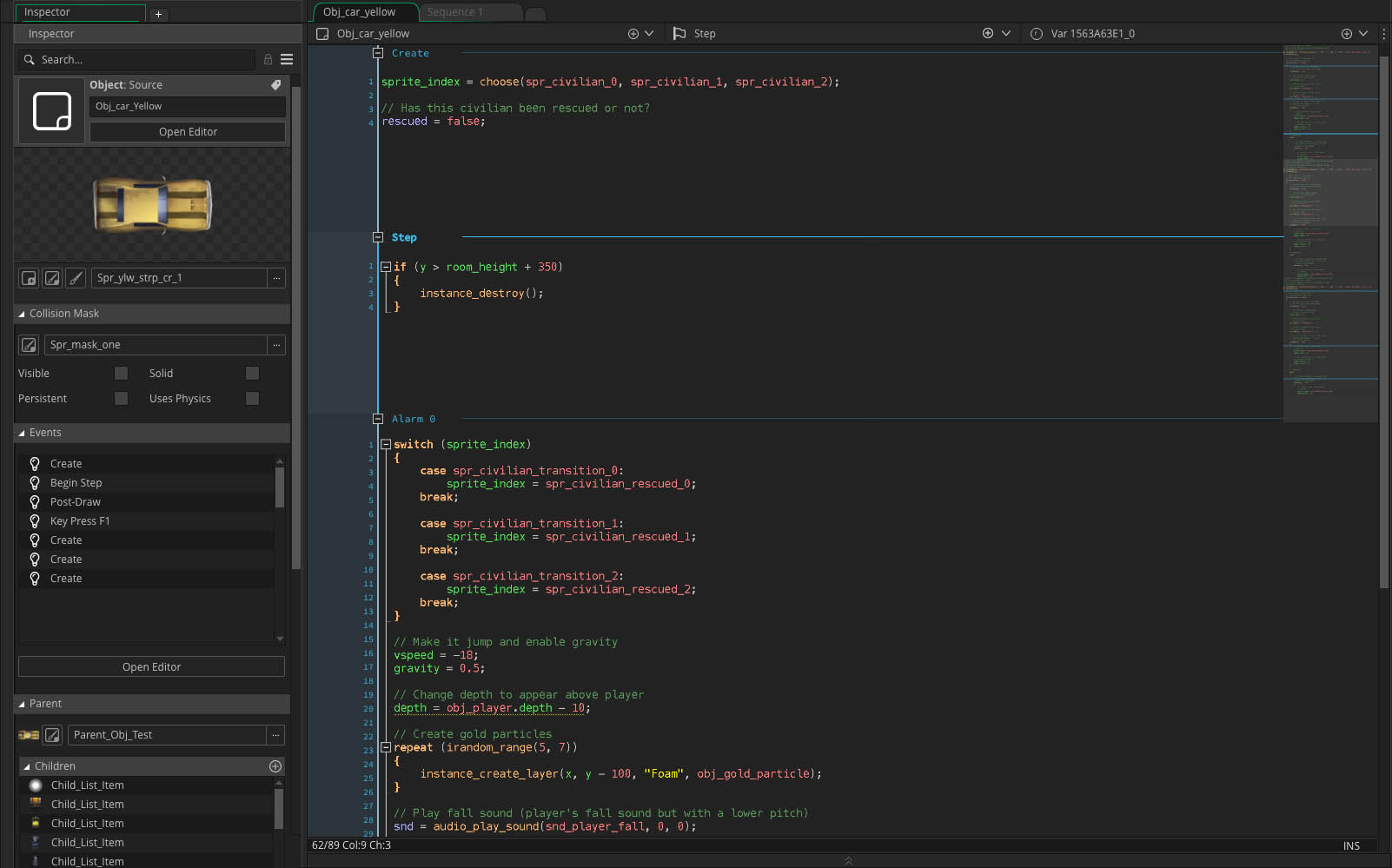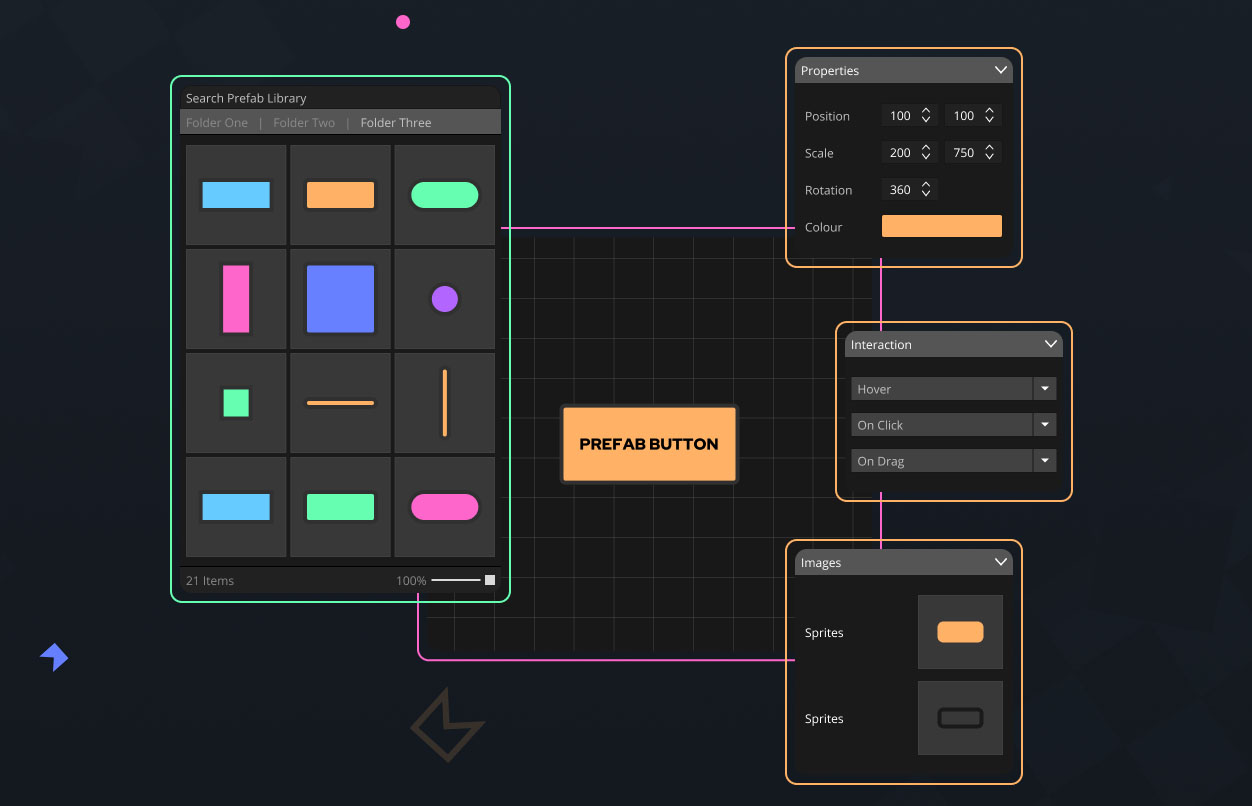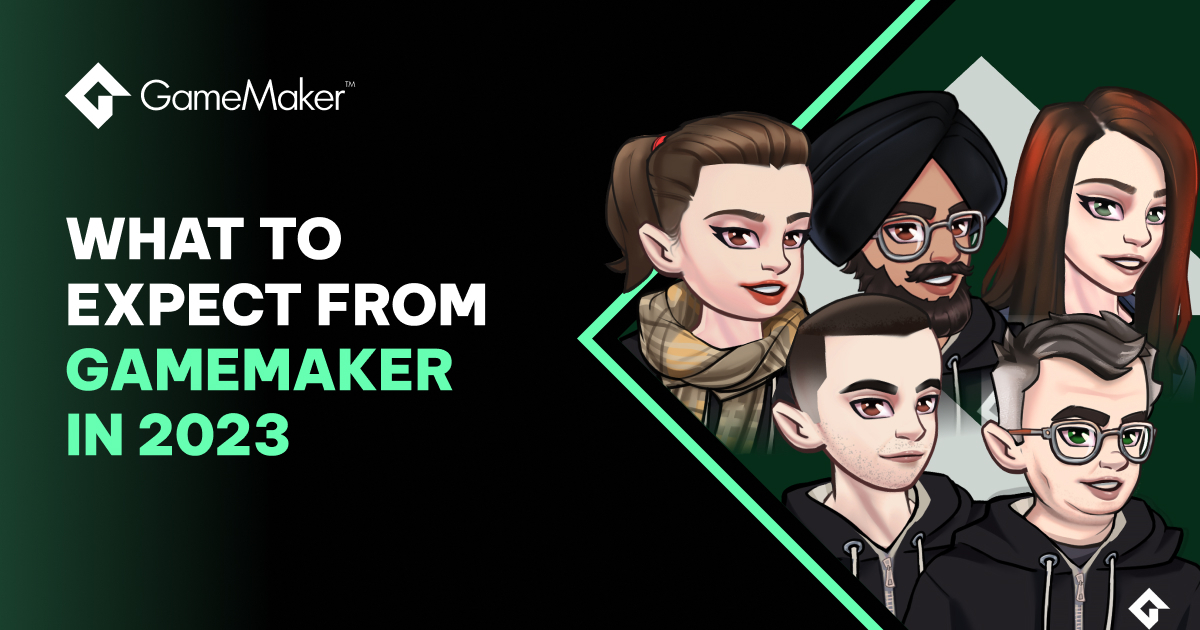The 2023 edition of our GameMaker Update video has been released, detailing all the major updates that are heading to the GameMaker software in 2023.
Let’s run through the headlines!
New Runtime (+ Beta)
The new runtime for GameMaker reworks the compiler and runtime toolchain, providing faster performance, easier debugging and improved coding. This new toolchain compiles to each platform natively, meaning you no longer have to choose between VM and YYC.
The Desktop and Web components of GameMaker’s new runtime will soon be available to a small number of closed beta participants.
Over the course of the beta period, we’ll be focusing on providing a compatibility layer between the current GMS2 runtime and the new runtime. This will allow existing games to use the new runtime with minimal changes.
When the beta phase has concluded, the new runtime will be available for everyone on the GX.games target, and on other platforms for subscribed users.
This new runtime marks the next evolution of GameMaker, and as such, you'll need a subscription to access it for other platforms.
We’ll be recruiting for the closed beta in the next few weeks.
Modding Extensions
Modding is coming to GameMaker! We’re adding an extension that will allow you to connect your games to mod.io. This is a popular website that supports a range of game mods, including simple DLC options and more sophisticated user-created levels and data.
Modding has been one of most popular requests from users, and while we currently offer limited support for modding, we’re looking to expanding that support over the coming months.
New Code Editor
A beta release of the redesigned Code Editor is scheduled for release in the autumn of this year. Initially, you’ll need to enable the new Code Editor within the IDE to access it.

Here’s what you can expect:
- The UI has been redesigned and the Code Editor is now hosted within a full screen window, allowing access to objects, events, and functions within the code file.
- New Objects and New Events can now be created from within the Code Editor itself, so there’s little need to move between the Workspace and the Code Editor.
- All Syntax Highlighting and Intellisense support is being moved to a Language Server, which allows us to support more languages within the Code Editor, such as Shader Languages (GLSL, HLSL etc) with Intellisense, JSON, and XML support.
- We’re also supporting Markdown within Notes and introducing side-by-side preview support to make it easier to see how changes affect the formatting.
We’ll be Open Sourcing our Language Server for GML, and since Visual Studio Code uses the same protocol, you’ll be able to use this within Visual Studio Code as well.
Any Language Server that uses the standard protocol will be usable within GameMaker, and we’ll offer configurations that allow GameMaker to use them while you’re editing.
Prefab Library
In last year’s update, we introduced Prefabs - GameMaker projects that contain any number of GameMaker resources, and can have defined, editable parameters.
This year, the Prefab Library will be added to GameMaker. The Prefab Library will be a new window within GameMaker that displays built-in and user-created Prefabs.

You’ll be able to drag them from the Library into Rooms or Sequences without adding the Prefab contents to your project. The compiler will then pull the required components using resource references when testing or exporting the game.
This keeps the Prefab separate from your project, and allows you to update the Prefab without having to change your project.
IDE Plugins
We’re working on moving all the IDE code into plugins, keeping a minimal Core for the IDE that maintains the file formats and serialisation, and orchestrates the plugins (that do all the real work).
The recently-added Particle Editor and Feather are both implemented as plugins, and we plan on moving Feather into a Language Server (and Open Sourcing it at the same time).
Language Servers will live within the Runtime rather than the IDE, and will have a different lifecycle to the IDE.
Our Language Translations for the IDE will be released as plugins and Open Sourced on GitHub. These will be open for community contributions, and we’ll be looking to recruit volunteers to ensure they’re translated accurately. This will include both the manual and IDE for all languages.
We want to ensure that we’ve covered the majority of use cases before we can allow users to create their own plugins. We expect to have this work complete by the end of the year with a closed Beta period for invited users to create plugins.
AI Integration
Hot off the heels of Opera’s recent collaboration with OpenAI, we’ve been experimenting with systems that allow AI queries and results to be incorporated directly into your projects.
We’re still in the very early stages, but we’re excited by the support AI can offer in generating code, creating graphical placeholders, and even allowing image in-painting (adding extra detail to an image) or out-painting (removing elements from images).
The improvements taking place within the AI sphere are breathtaking, and we’re aiming to provide these opportunities within GM over the coming months.
We want to be clear that as GameMaker explores the potential of AI, we are 100% committed to avoiding any uses or integrations that quash individual expression, or that draws on copyrighted materials. We’re interested in AI that compliments and simplifies your work, not that replaces or steals it.
New Marketplace
In collaboration with Opera’s Cloud Gaming team, we’re also in the process of investigating a system for hosting a new Marketplace. We’re still in the very early stages of this process, but we hope to have more details to share later in 2023!
If you’d like to learn more about our plans for 2023, check out the full GameMaker Update 2023 video that’s available on our YouTube channel.
We’d like to offer a huge thank you to our passionate community for helping inform the future plans of GameMaker. We can’t wait to share these updates with you in 2023 and beyond.
Happy GameMaking!


